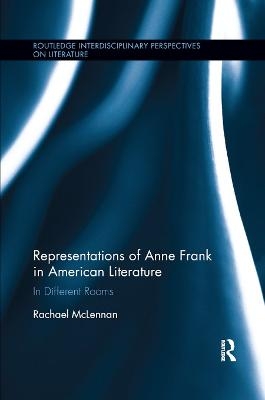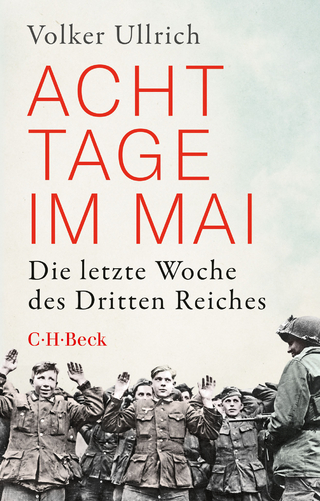
Representations of Anne Frank in American Literature
Routledge (Verlag)
978-0-367-86872-7 (ISBN)
This book explores portrayals of Anne Frank in American literature, where she is often invoked, if problematically, as a means of encouraging readers to think widely about persecution, genocide, and victimisation; often in relation to gender, ethnicity, and race. It shows how literary representations of Anne Frank in America over the past 50 years reflect the continued dominance of the American dramatic adaptations of Frank’s Diary in the 1950s, and argues that authors feel compelled to engage with the problematic elements of these adaptations and their iconic power. At the same time, though, literary representations of Frank are associated with the adaptations; critics often assume that these texts unquestioningly perpetuate the problems with the adaptations. This is not true. This book examines how American authors represent Frank in order to negotiate difficult questions relating to representation of the Holocaust in America, and in order to consider gender, coming of age, and forms of inequality in American culture in various historical moments; and of course, to consider the ways Frank herself is represented in America. This book argues that the most compelling representations of Frank in American literature are alert to their own limitations, and may caution against making Frank a universal symbol of goodness or setting up too easy identifications with her. It will be of great interest to researchers and students of Frank, the Holocaust in American fiction and culture, gender studies, life writing, young adult fiction, and ethics.
Rachael McLennan is Senior Lecturer in American Literature and Culture at the University of East Anglia, UK.
Introduction: Telling Stories in New Ways? Anne Frank in American Literature
Chapter 1: Prosthetic Fictions: Philip Roth’s Anne Franks
Chapter 2: The Banality of Anne Frank: Open Secrets in Norma Rosen's Touching Evil (1969) and Joyce Carol Oates's Mother, Missing (2005)
Chapter 3: 'Cheating History': Anne Frank and the Photograph in Anne Tyler's Dinner at the Homesick Restaurant (1982) and Elinor Lipman's The Inn at Lake Devine (1998)
Chapter 4: Skewed Views: What Anne Frank Teaches in Stephanie S. Tolan's The Liberation of Tansy Warner (1980) and John Green's The Fault in Our Stars (2012)
Chapter 5: Uprooting the Lost Child: Cultivating Identifications in C.K. Williams's "A Day for Anne Frank" (1968), Marjorie Agosin's Dear Anne Frank (1998), and Paul Auster's The Invention of Solitude (1982)
Chapter 6: In Other Words: Anne Frank and the Alternate (Personal) History in Ellen Feldman's The Boy Who Loved Anne Frank (2005) and Jillian Cantor's Margot (2013)
Chapter 7: 'What We Talk About When We Talk About Anne Frank': Holocaust Impiety and Competitive Memory in Shalom Auslander's Hope: A Tragedy (2012) and Nathan Englander's "What We Talk About When We Talk About Anne Frank" (2012)
Chapter 8: States of Confusion: Anne Frank and America in Michelle Cliff's Abeng (1984) and "A Visit to the Anne Frank House" (1985)
| Erscheinungsdatum | 23.12.2019 |
|---|---|
| Reihe/Serie | Routledge Interdisciplinary Perspectives on Literature |
| Verlagsort | London |
| Sprache | englisch |
| Maße | 152 x 229 mm |
| Gewicht | 340 g |
| Themenwelt | Geisteswissenschaften ► Geschichte ► Allgemeines / Lexika |
| Geschichte ► Allgemeine Geschichte ► 1918 bis 1945 | |
| Geisteswissenschaften ► Sprach- / Literaturwissenschaft ► Anglistik / Amerikanistik | |
| Geisteswissenschaften ► Sprach- / Literaturwissenschaft ► Literaturwissenschaft | |
| ISBN-10 | 0-367-86872-5 / 0367868725 |
| ISBN-13 | 978-0-367-86872-7 / 9780367868727 |
| Zustand | Neuware |
| Haben Sie eine Frage zum Produkt? |
aus dem Bereich


